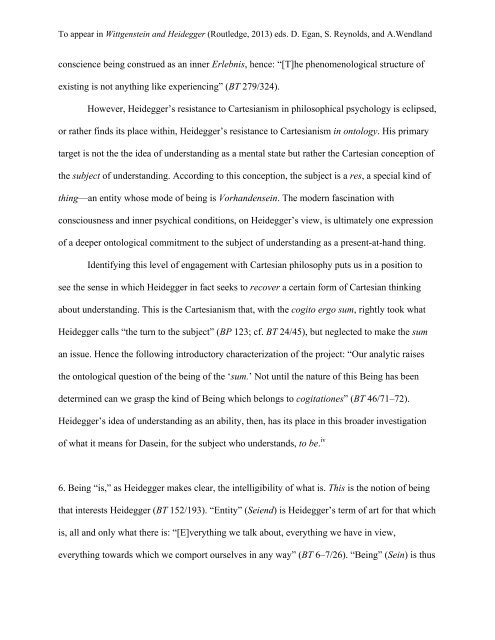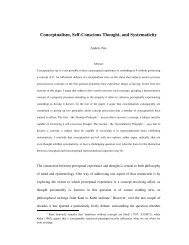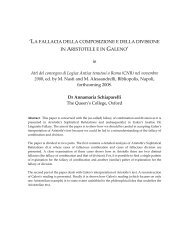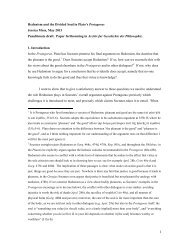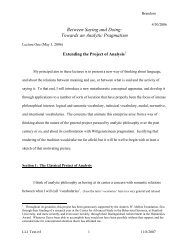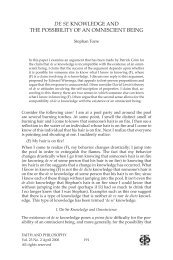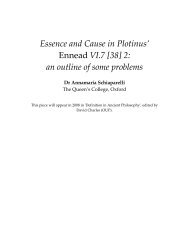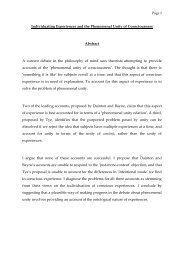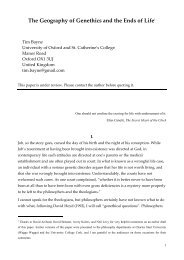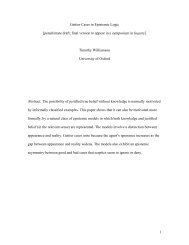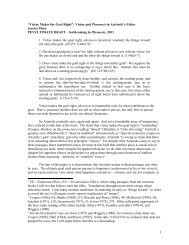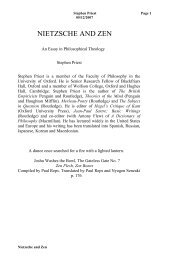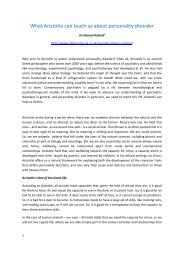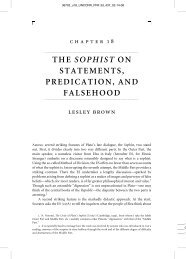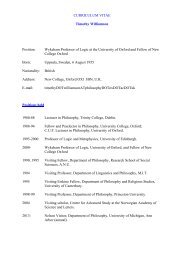Understanding as a Finite Ability Joseph K. Schear Christ Church ...
Understanding as a Finite Ability Joseph K. Schear Christ Church ...
Understanding as a Finite Ability Joseph K. Schear Christ Church ...
Create successful ePaper yourself
Turn your PDF publications into a flip-book with our unique Google optimized e-Paper software.
To appear in Wittgenstein and Heidegger (Routledge, 2013) eds. D. Egan, S. Reynolds, and A.Wendland<br />
conscience being construed <strong>as</strong> an inner Erlebnis, hence: “[T]he phenomenological structure of<br />
existing is not anything like experiencing” (BT 279/324).<br />
However, Heidegger’s resistance to Cartesianism in philosophical psychology is eclipsed,<br />
or rather finds its place within, Heidegger’s resistance to Cartesianism in ontology. His primary<br />
target is not the the idea of understanding <strong>as</strong> a mental state but rather the Cartesian conception of<br />
the subject of understanding. According to this conception, the subject is a res, a special kind of<br />
thing—an entity whose mode of being is Vorhandensein. The modern f<strong>as</strong>cination with<br />
consciousness and inner psychical conditions, on Heidegger’s view, is ultimately one expression<br />
of a deeper ontological commitment to the subject of understanding <strong>as</strong> a present-at-hand thing.<br />
Identifying this level of engagement with Cartesian philosophy puts us in a position to<br />
see the sense in which Heidegger in fact seeks to recover a certain form of Cartesian thinking<br />
about understanding. This is the Cartesianism that, with the cogito ergo sum, rightly took what<br />
Heidegger calls “the turn to the subject” (BP 123; cf. BT 24/45), but neglected to make the sum<br />
an issue. Hence the following introductory characterization of the project: “Our analytic raises<br />
the ontological question of the being of the ‘sum.’ Not until the nature of this Being h<strong>as</strong> been<br />
determined can we gr<strong>as</strong>p the kind of Being which belongs to cogitationes” (BT 46/71–72).<br />
Heidegger’s idea of understanding <strong>as</strong> an ability, then, h<strong>as</strong> its place in this broader investigation<br />
of what it means for D<strong>as</strong>ein, for the subject who understands, to be. iv<br />
6. Being “is,” <strong>as</strong> Heidegger makes clear, the intelligibility of what is. This is the notion of being<br />
that interests Heidegger (BT 152/193). “Entity” (Seiend) is Heidegger’s term of art for that which<br />
is, all and only what there is: “[E]verything we talk about, everything we have in view,<br />
everything towards which we comport ourselves in any way” (BT 6–7/26). “Being” (Sein) is thus


